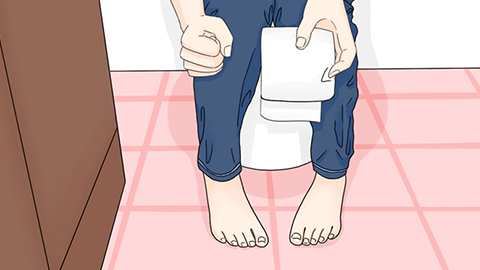What are the harms of internal hemorrhoids?
If internal hemorrhoids are neglected or not promptly treated, they may generally lead to persistent bleeding during bowel movements and anemia, worsening prolapse of hemorrhoidal tissue, perianal infections, difficulty in defecation, and a reduced quality of life. The specific risks are analyzed as follows:

1. Persistent bleeding and anemia: In the early stages, internal hemorrhoids often cause dripping blood during bowel movements or blood-streaked toilet paper. Long-term recurrent bleeding leads to iron loss in the body, gradually resulting in iron-deficiency anemia. Symptoms include dizziness, fatigue, pale complexion, palpitations, and shortness of breath. In severe cases, this can impair daily activities and bodily functions.
2. Worsening hemorrhoid prolapse: In initial stages, hemorrhoidal tissue may protrude only during bowel movements and spontaneously retract afterward. As the condition progresses, manual pushing may be required to return the tissue, and eventually it may prolapse even during walking or coughing. In advanced stages, the hemorrhoid may become incarcerated outside the anus, unable to be pushed back in, causing severe pain.
3. Perianal infection: Prolapsed hemorrhoidal tissue is easily irritated by feces and secretions, leading to skin breakdown around the anus. Bacteria can then invade and cause infection, resulting in redness, swelling, pain, and increased discharge. In severe cases, this may progress to perianal abscess formation, complicating treatment.
4. Difficulty in defecation: Patients with internal hemorrhoids may delay bowel movements out of fear of bleeding or prolapse. This prolongs stool retention in the intestines, allowing excessive water absorption, which hardens the stool. Subsequent bowel movements can then further aggravate hemorrhoidal damage.
5. Reduced quality of life: Symptoms such as bleeding, pain, and tissue prolapse disrupt normal bowel habits and may cause discomfort when sitting, standing, or walking, affecting work and rest. Prolonged suffering from these symptoms may also trigger negative emotions such as anxiety and irritability.
Once symptoms of internal hemorrhoids appear, it is important to adjust the diet by increasing fiber intake and maintaining regular bowel movements, while avoiding prolonged sitting or standing. If frequent bleeding or hemorrhoid prolapse occurs, prompt consultation with a proctologist is recommended. Timely medical treatment—pharmacological or otherwise—can help control the condition and prevent further complications.







